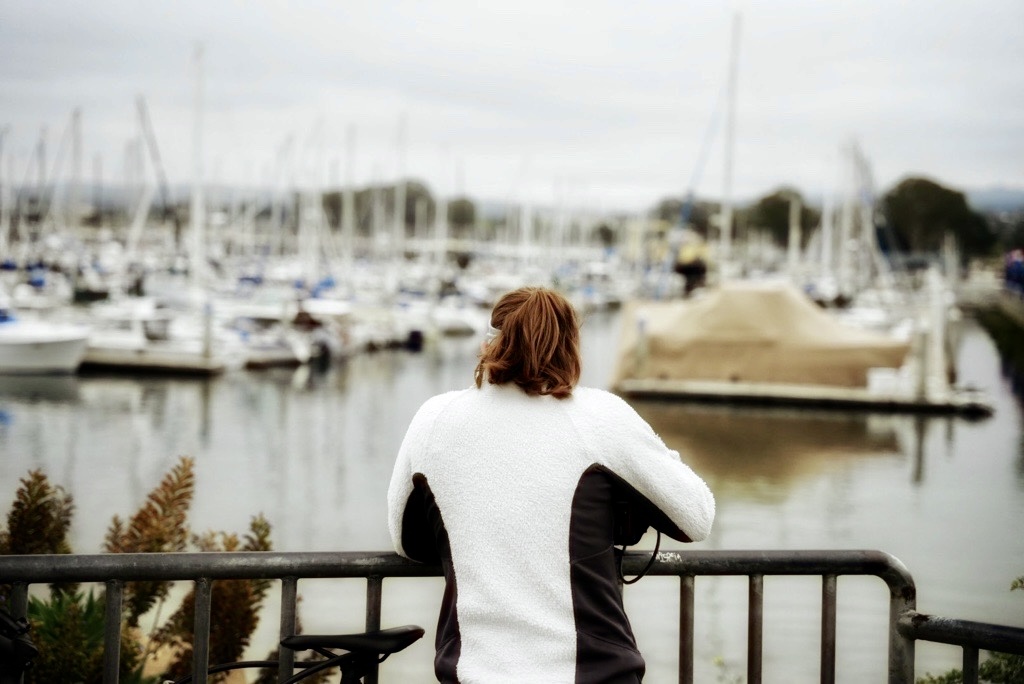Project Ocean Monterey – Empathy and Turtles
“The tides are in our veins.” – Robinson Jeffers.
When I saw this quote standing tall on a white and strategically lit column in the middle of a busy bird exhibit in the Monterey Bay Aquarium, I knew it would make it into our Project Ocean film. I wasn’t exactly sure where or how it would appear, but I knew instinctively that it captured a vision for the film I had not yet found the words to describe.
George
Rod (director of photography) and I were sent to said aquarium as half tourists, half filmmakers on the recommendation of our morning’s interviewee, Dr. George Shillinger. Dr. Shillinger heads up Upwell Turtles, an organization working to protect turtles at sea all over the world.
I knew he possessed a PhD from my research and interview preparation, but on that chilly June Monterey morning, he introduced himself simply as “George”.
George’s humble, down-to-earth spirit and gentle hospitality became inadvertently necessary for what Rod and I asked of him next. Admittedly, he did not receive the diva treatment from us that would have seemed congruent with the picturesque scene of our interview location, Pebble Beach.
Rolling waves, eye-catching stone formations, plentiful sand, skilled surfers – it was everything one could hope for as an interview backdrop. But in order to maximize the visuals of the scene so that you, the viewer, could enjoy to the upmost potential, there were several pain points behind the scenes.
First, we perched him like a cat on the highest rock around so that the background would include as many of the elements listed above as possible. Only, we humans are not shaped like cats, and while I would not say the rocks were pointy, I would also not say they were un-pointy. I know my butt did not feel good, or really feel at all, by the end of the interview, so surely his did not either.
Secondly, I dispossessed him of his jacket and water bottle so that they would not appear in a heap next to him in our wide shot. Yes, he did get rained on.
This poor man. (Please make sure you revel in this interview’s visuals in our final film so that his suffering will be worth it.)
Beyond overcoming nature’s jabs, George’s humility became increasingly noteworthy to me as we progressed through our questions and answers, mostly because it was matched only by his elite knowledge.
We talked turtles for an hour.
He gave the sort of interview that required of me only a few questions, as he could have informed endlessly on any given aspect of the sea turtle experience. He’s dedicated his life, decades of work, to their protection and flourishing. I could readily see his brain constantly firing to produce language that was powerful yet understandable to the likes of me (and perhaps you), the non-turtle experts.
Some would call this a contrast – humility versus expertise. I would argue they do not compete, but rather equip one another for meaningful impact. They are left and right hands, and in a harmonious body, they work together. They need each other.
Bellwethers
After hearing that “we are in an era of mass extinction”, Rod and I sat on the beach with a sobering understanding of the plight that sea turtles across our globe face. Nearly every species is classified as endangered, with almost half classified as critically endangered.
As sad as this is for turtles in and of themselves, it doesn’t stop there.
George insightfully labeled turtles a bellwether species. As they go, so the ocean goes. And as the ocean goes, so we go. No one, no species, exists in a vacuum.
So, what is the solution? George issued us a poignant challenge:
Empathy.
A well-crafted solution, of course, requires knowledge and education. It requires expertise.
But recognizing the suffering of other living things first requires the humility to see that we are not the only ones here, that we are not the center of the universe. To care about that suffering enough to seek and deliver a solution requires empathy. Humility and empathy are the building blocks upon which positive change is possible.
We must live a life with the tides in our veins.










